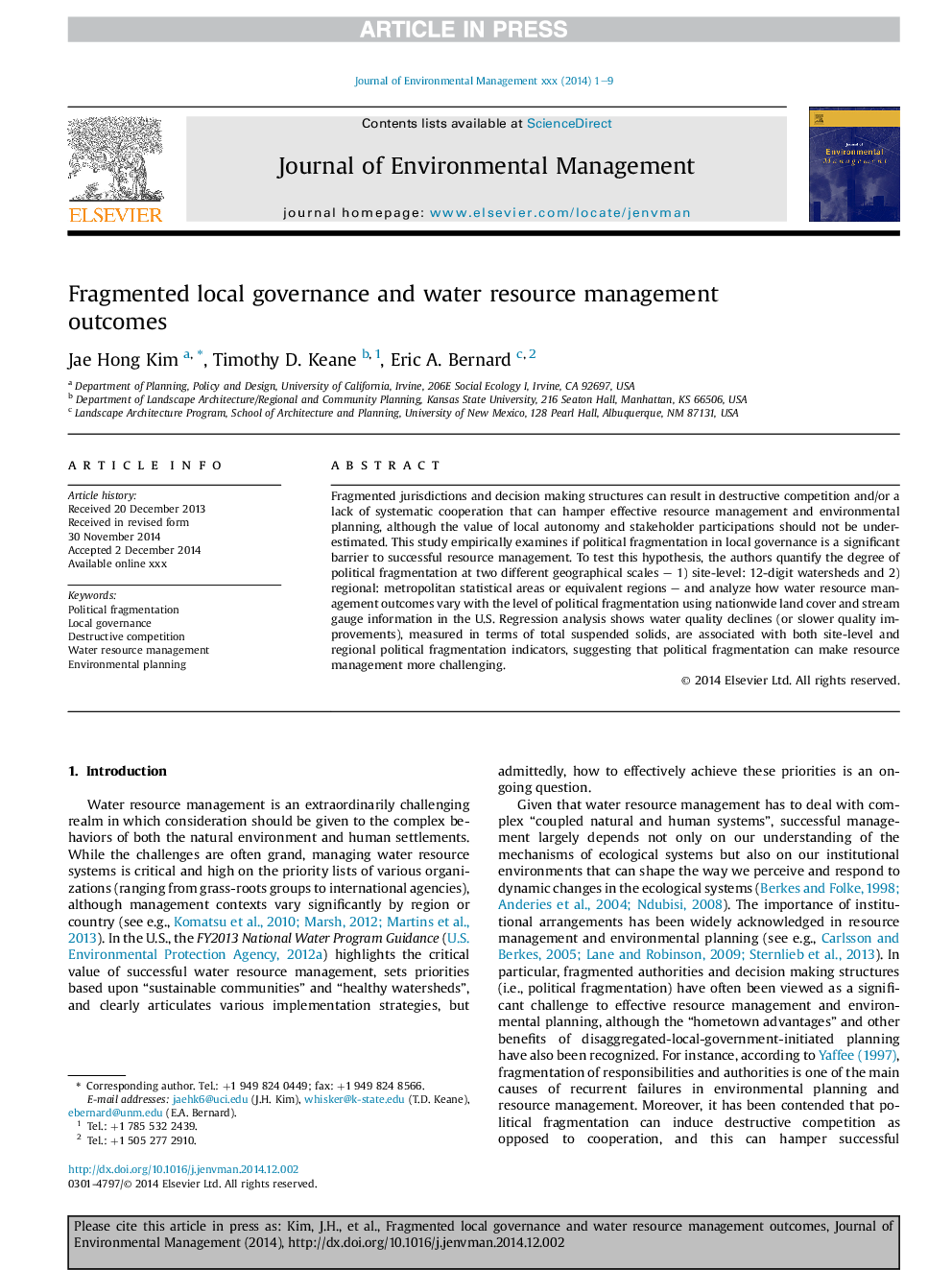| Article ID | Journal | Published Year | Pages | File Type |
|---|---|---|---|---|
| 7482923 | Journal of Environmental Management | 2015 | 9 Pages |
Abstract
Fragmented jurisdictions and decision making structures can result in destructive competition and/or a lack of systematic cooperation that can hamper effective resource management and environmental planning, although the value of local autonomy and stakeholder participations should not be underestimated. This study empirically examines if political fragmentation in local governance is a significant barrier to successful resource management. To test this hypothesis, the authors quantify the degree of political fragmentation at two different geographical scales - 1) site-level: 12-digit watersheds and 2) regional: metropolitan statistical areas or equivalent regions - and analyze how water resource management outcomes vary with the level of political fragmentation using nationwide land cover and stream gauge information in the U.S. Regression analysis shows water quality declines (or slower quality improvements), measured in terms of total suspended solids, are associated with both site-level and regional political fragmentation indicators, suggesting that political fragmentation can make resource management more challenging.
Related Topics
Physical Sciences and Engineering
Energy
Renewable Energy, Sustainability and the Environment
Authors
Jae Hong Kim, Timothy D. Keane, Eric A. Bernard,
